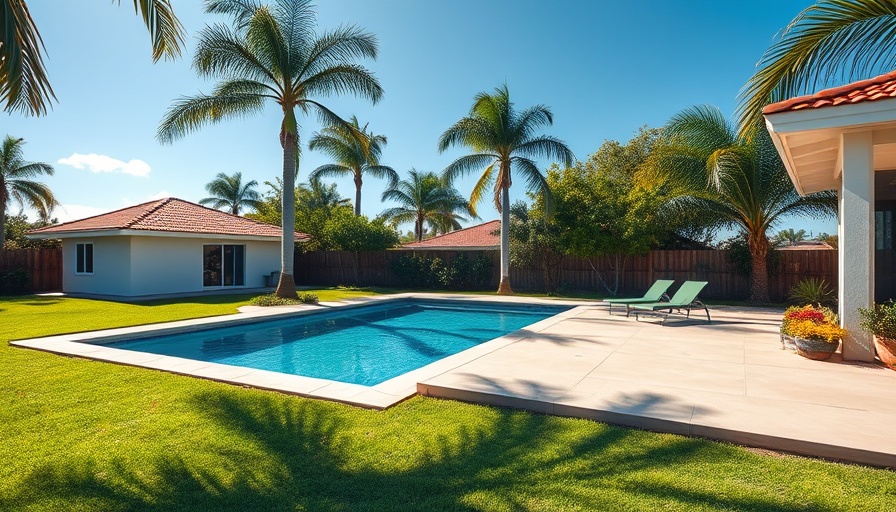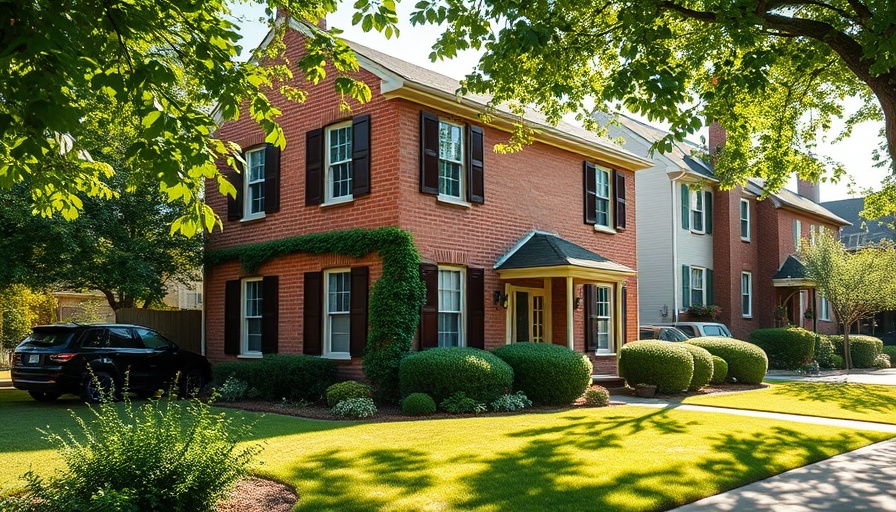
Does a Swimming Pool Really Increase Your Home’s Value?
When considering home improvements, the question of whether a pool increases home value often arises. The straightforward answer is complex. Factors such as location, climate, pool type, and neighborhood norms significantly affect this potential increase. For instance, a pool in a warm area where it can be enjoyed year-round may yield more substantial returns than one in a colder climate, where it might only be usable for a few months out of the year.
The Geographic Impact on Pool Value
Not all regions hold the same views on pools. In areas like Los Angeles or Miami, pools can add up to $100,000 in value due to high demand and the lifestyle associated with warm climates. In contrast, colder regions, such as parts of the Northeast or Midwest, might see little to no increase, and in some suburbs, a pool could even detract from a home's appeal. Prospective buyers in these areas may be deterred by the long-term costs of maintaining a pool, which averages between $1,200 and $1,800 annually.
Understanding Pool Types and Their Value
The type of pool also plays a pivotal role in how much value it can add. In-ground pools tend to significantly increase the market value of a home compared to above-ground alternatives, which are often considered temporary and less aesthetic. Potential homebuyers typically view in-ground pools as an extension of luxury and resort-style living, while above-ground pools might be perceived as less desirable. Better materials used in construction, high-end finishes, and additional features like waterfalls and spas all contribute positively to a property's value.
The Cost of Maintenance: A Double-Edged Sword
While pools can enhance property value, they come with substantial ongoing costs that could deter potential buyers. Expenses like routine cleaning, chemical treatments, increased utility bills, and insurance can add significant financial burdens. Homeowners should weigh these factors carefully; a well-maintained pool can attract buyers and increase property desirability, while a poorly kept pool can significantly lower perceived value.
Neighborhood Expectations: A Matter of Trends
The neighborhood's culture and common features are essential in determining how much value a pool can add. In communities where pools are commonplace, homes lacking pools might struggle to attract buyers. Conversely, in areas where pools are uncommon, they might not be necessary to secure interest. Understanding local trends is vital for potential homebuyers looking to make informed decisions in the real estate market.
Future Trends for Pools in Real Estate
As climate change continues to influence weather patterns and economic factors shape lifestyles, the value of pools in real estate could evolve. More families prioritize outdoor living spaces for leisure and entertainment, which may make pools more sought after in the future. Homebuyers might increasingly consider pools as essential elements of residential life, particularly in suburban and urban developments as crawls into the 'staycation' era.
What Should You Consider Before Installation?
Before investing in a swimming pool, homeowners should evaluate several considerations:
- Location: Ensure the climate and neighborhood will support the pool’s value.
- Type of Pool: Decide between an in-ground and above-ground option based on future resale value.
- Future Costs: Consider how much maintenance will cost and whether that aligns with potential appreciation.
- Community Appeal: Research neighborhood norms and what potential buyers are looking for.
 Add Row
Add Row  Add
Add 



Write A Comment